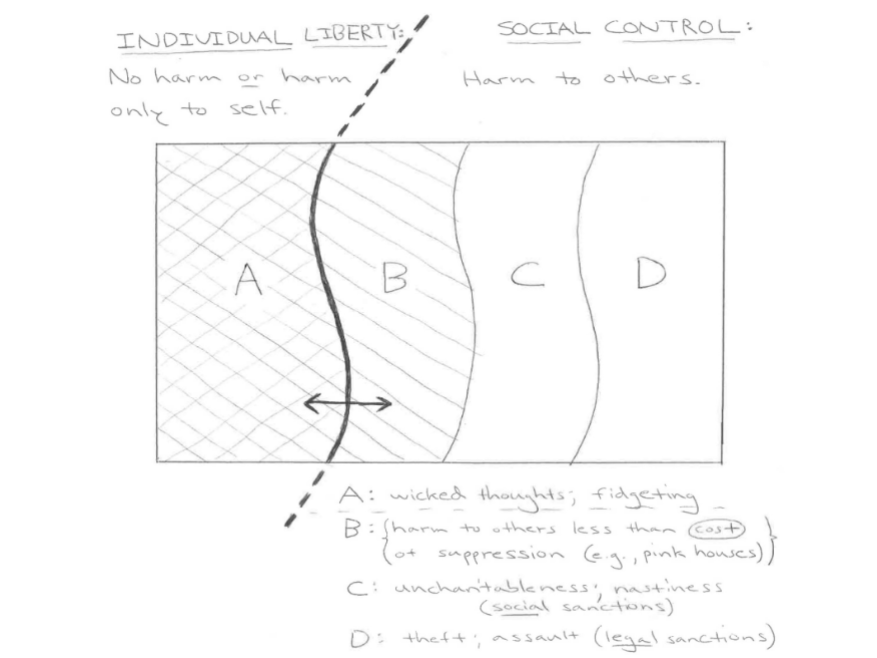Mill’s On Liberty Chapters IV and V: Mapping* the Boundary between Individual Liberty and Social Control
1/15
Earn XP
Description and Tags
theres an immmage study it plz
Name | Mastery | Learn | Test | Matching | Spaced |
|---|
No study sessions yet.
16 Terms
Freedom of Opinion: Ground 1
Silenced opinions might be true. Suppressing them assumes our infallibility.
Freedom of Opinion: Ground 2
False opinions often contain part of the truth; only through open debate can we approach full truth.
Freedom of Opinion: Ground 3
Even true beliefs become dead dogmas if not challenged; understanding requires defending beliefs.
Freedom of Opinion: Ground 4
Without challenge, belief loses meaning and motivational force—it becomes hollow and rote.
Dead Dogma
A belief held without understanding or reflection, due to lack of opposition or questioning.
Individuality
Essential for human development; we grow by choosing and pursuing our own “experiments in living.”
Mill’s Perfectionism
Emphasizes development of human capacities (thought, judgment, action) over mere pleasure.
Principle of Liberty
Individuals are free to act unless their actions cause harm to others—not just offense or annoyance.
What Counts as “Harm”?
Harm must involve real damage or risk—emotional offense or moral dislike doesn't qualify.
No Parity of Feelings
Mill claims offense at others’ actions (e.g., worship) is not equal to freedom to act; offense isn’t harm.
Sidgwick’s Critique
Argues Mill underestimates risks of offense; strong presumptive harms may justify limiting liberty.
Justifiable Paternalism
Limited to cases where individuals are uninformed, immature, intoxicated, or irrational.
Mill on Alcohol
Opposes prohibition; supports regulation only when drink causes harm or violates obligations.
Prior Restraint
Mill opposes pre-emptively restricting liberty (e.g., banning access to alcohol or speech) unless harm is clear.
Regulating Procreation
Mill controversially allows state limits on reproduction if children’s lives would be harmed.
Image
Image
